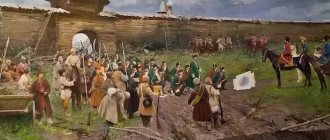The history of the creation of the book by Niccolo Machiavelli
This essay was written by the Florentine thinker, writer and statesman Niccolo Machiavelli. It's one that's worth reading.
Niccolo received a good education and knew the main classical works of those years, including the works of Titus Livy and other historians.
During the first half of his life he was a statesman of his country. During these years, armed clashes in the struggle for power were not uncommon.
In the Florentine Republic, Niccolo was engaged in diplomatic activities and often visited the courts of European rulers. At this time, Italy was fragmented, and wars fought regularly with the help of mercenary armies.
Niccolo received the main impetus for thinking about the principles of power while staying at the Borgia court. In 1512, the Medici became the rulers of Florence.
When the government changed, after some time Machiavelli completely stopped participating in politics and got a job as a historiographer. As a supporter of the previous regime, he could no longer hold significant positions.
No matter how many pages he wrote, they were all based not only on theoretical knowledge, but also on the rich experience of a statesman of his time.
The first version of the work had a different title: “On the Principalities.” The first chapters of the book were created in 1513. This book was not published during the author’s lifetime.
The first edition took place in 1532, five years after the death of Niccolò Machiavelli. At one time, it was treated as a fundamental work that summarized knowledge related to government.
This book can be read online.
N. Machiavelli's teaching on state and politics
Niccolo Machiavelli One of the first theorists of the new era was the Italian Niccolo Machiavelli (1469-1527). Machiavelli was for a long time an official of the Florentine Republic, with access to a number of state secrets. The life and work of Machiavelli date back to the period of the beginning of the decline of Italy, until the 16th century. formerly the most advanced country in Western Europe. The writings of Machiavelli laid the foundation for the political and legal ideology of the New Age. His political teaching was free from theology; it is based on the study of the activities of contemporary governments, the experience of states of the Ancient world, and Machiavelli’s ideas about the interests and aspirations of participants in political life.
“Nature has created people in such a way,” wrote Machiavelli, “that people can desire everything, but cannot achieve everything.” Because of this, people are restless, ambitious, suspicious and never satisfied with their lot. Therefore, in politics one should always count on the worst, and not on the good and ideal.
Machiavelli viewed the state (regardless of its form) as a kind of relationship between the government and its subjects, based on the fear or love of the latter. The state is unshakable if the government does not give rise to conspiracies and disturbances, if the fear of its subjects does not develop into hatred, and love into contempt.
Machiavelli's focus is on the real ability of government to command its subjects. The book “The Prince” and other works contain a number of rules and practical recommendations based on his idea of the passions and aspirations of people and social groups, on examples of history and contemporary practice of Italian and other states.
After writing the treatise “The Prince” (1512), Machiavelli became a European celebrity. A very ambiguous fame haunts him: on the one hand, N. Machiavelli formulated the subject of political science, but he is condemned for creating a blasphemous work (with anti-Christian philosophy).
In his opinion, there are three forces in history: God, Fate and the Great Personality. Machiavelli was the first to pay attention to the role of personality in history.
The main features of his teaching:
1. Humanism: “A person can do anything: change the will of God, change his destiny, a person can be great even in crime. A person can change the course of history."
2. Anti-fatalism: the desire to change one’s destiny.
3. Realism. Described what is there.
The essence of the treatise “The Sovereign” is the doctrine of politics.
A) Politics is an experimental science of the real state of affairs. He studies the world of power as it is.
B) Politics is the science of ways to seize and maintain power. The first formulated the concept of power. Power is a state of dominance and submission.
C) Politics is a purposeful type of human activity. The goal is always the same - to support and offer power.
D) Politics is a special immoral sphere of social life; in the struggle for power one cannot be guided by moral criteria. Moral judgment cannot be used in assessing political actions.
D) Politics is autonomous in relation to religion.
E) Politics is a sphere where every end justifies the means.
G) Politics is an art. Politics cannot be taught, personality is of paramount importance. There are no permanent means of success in politics. The choice of means depends on the situation.
Basics of power:
1. Material foundations - strength. Numerous loyal army. The politician himself must have the principles of a commander.
2. Power must have a social support - the people. (Machiavelli recommends relying on the people; it is better to exterminate the aristocracy.)
3. Psychological grounds (feelings). The people should love and (more) fear the ruler. There are psychological feelings that are harmful to power - hatred and contempt. You can't rob people. Contempt is caused by the inactivity of the ruler, his cowardice. The policy of the "golden mean". The ruler must learn to be unkind (the ability to lie, kill). The ruler must appear to be a great man (image).
Machiavelli considered the security of the individual and the inviolability of property to be the goal of the state and the basis of its strength. The most dangerous thing for a ruler, Machiavelli tirelessly repeated, is to encroach on the property of his subjects - this inevitably gives rise to hatred (and you can never rob so much that there is not a knife left). Machiavelli called the inviolability of private property, as well as the security of the individual, the benefits of freedom and considered the goal and basis of the strength of the state.
Machiavelli reproduces Polybius's ideas about the emergence of the state and the cycle of forms of government; Following the ancient authors, he gives preference to a mixed (monarchy, aristocracy and democracy) form.
Religion must be one of the attributes of the state and must have state status. The harm of Christianity for the state, because weakness of state value in the state.
Political ideal (dual).
1. The most optimal is the Florentine Republic.
2. In the treatise “The Prince,” absolute monarchy is the best form of government. The creation of a unified Italian state justified any means necessary.
The works of Machiavelli had a tremendous influence on the subsequent development of political and legal ideology. They formulated and justified the main program demands of the bourgeoisie: the inviolability of private property, the security of person and property, the republic as the best means of ensuring the “benefits of freedom”, the condemnation of the feudal nobility, the subordination of religion to politics and a number of others. The most insightful ideologists of the bourgeoisie highly appreciated Machiavelli's methodology, especially the liberation of politics from theology, the rationalistic explanation of state and law, and the desire to determine their connection with the interests of people.
Main ideas of the treatise
This treatise is structured in the form of lectures in which the author gives advice to the ruler.
It is important to note that neither the specific person nor the title of the one for whom the book was written is named. We can say that it is intended for those who seek to strengthen their power and increase it.
The author wants to say that the ruler who is able to properly use the proposed knowledge can be considered ideal.
[edit] Political doctrine of the Sovereign
The subject of the “Sovereign’s” reasoning is a autocratic society. Machiavelli’s “prince” is that is, a politician who strives to maintain the fullness of his power and uses for this purpose all possible means, which he, meanwhile, uses judiciously and economically. Machiavelli does not describe the merits of an autocratic society, but he only explores the method and essence of autocracy. He described what people usually do, not what they should do.[2] There are even opinions that in the Sovereign he criticizes tyrants, that he is looking for a type of master who would establish a good image, justice and independence from strangers.[3]
The book “The Sovereign” has become a textbook for all those rulers who strive for unlimited power. It is often believed to be the beginning of modern political science.[4][5] On a serious level, The Prince is read along with discussions of the first decade of Titus Livy, where Machiavelli presents himself as a fan of limited government, the rule of law, and a supporter of liberty.
Machiavelli's "The Prince" had a strong influence on politics. Many thinkers and writers have been influenced by it, from Leonardo da Vinci to the present day. It was banned in Elizabethan England, and the Prussian king Frederick the Second the Great wrote the work Anti-Machiavelli.
[edit] Ideas that are described in “The Prince”
Machiavelli puts forward a number of important ideas in The Prince that have had a huge impact on politics. Among them are such as the separation of morality from political action, as a result of which certain points of Machiavellianism - Machtpolitik (power politics) - became widely known. Such Machiavellianism became a scandalous event, and the terms frodi onorevoli (worthy deception) or scelleratezze gloriose (glorious obscenity) fell into disrepute.[4]
[edit] Cyclicity
In the idea of cyclicity, Machiavelli established a new law of the cycle, unknown neither in Antiquity nor in the Middle Ages - a change in the form of the state occurs not at the desire or imagination of people, but under the influence of life circumstances, under “the influence of the actual course of substances, but not imaginary.” [6]
Summary of the treatise “The Sovereign”
When considering ideas of how one can gain power, Machiavelli talks about three possible options:
- carrying out violence;
- virtue;
- luck.
The author emphasizes that the use of weapons reinforces the power of virtue. He pays attention to the reasons for the end of power.
The author believes that the first sign of the fall of a ruler is the deprivation of his inner strength, expressed in the manifestation of popular contempt or the manifestation of the ruler’s vices, violating the customs of the people he rules.
The power of the prince will be more durable in cases where it is combined with generosity and mercy. Machiavelli attaches importance to a positive reputation, which allows, in case of mistakes, not to face their consequences.
The author pays attention to the structure of society, in which he distinguishes three sides: the ruler, the people and the grandees. It is important that a leader balances between the last two in his actions.
Niccolo Machiavelli points out that the source of the truths he expounds is experience and a good knowledge of history. He argues that true rules can be derived from real historical situations.
It is interesting that at the same time he openly sympathizes with people who have shown themselves in ambiguous ways. For example, if an adventurer seizes the throne, he considers him a skillful ruler who achieved success thanks to the skill he has.
The book examines a large number of specific situations and gives advice on how to deal with them wisely from the author's point of view. Numerous reviews of this book indicate that it has not lost its significance over the centuries.
Sovereign
Summary of the treatise
The sovereign is the main subject of Machiavelli's reasoning and the central political image created by him in the treatise. Having previously examined what types of states there are (“republics or those governed by autocracy,”) and giving historical examples of their various options, Machiavelli moves on to the problem of political power and, above all, those conditions that make it possible to conquer it, and, having conquered it, to retain it.
Next, he focused entirely on the personality of the ruler. Machiavelli justifies a politician who acts according to circumstances, remains faithful to his word, shows mercy, but in his soul is always ready to “change direction if events take a different turn or the wind of fortune blows in the other direction...”. Talks about time, which allows or hinders the achievement of success, namely success is a measure of valor. Machiavelli does not see in his contemporary history a person worthy of seizing power. Therefore, he is ready to agree even to have it carried out by an unworthy person, who served as the prototype for his treatise - Cesare Borgia, Duke Valentino. The son of Pope Alexander the Sixth, he was an example of the most cruel, assertive and, for the time being, successful political adventurer. After the death of the pope, fate, however, turned away from Cesare, dooming him to death, and the state, which he created with such skill and such blood, to collapse. Machiavelli was a direct witness to how this state was born in wars, for, on behalf of the Florentine Republic, he more than once accompanied the troops of Duke Valentina, and in his reports more than once warned how dangerous and insidious he was. During his lifetime, a political opponent for Machiavelli, Cesare, after his death, will become the original from which the portrait of an ideal modern sovereign will be copied.
The author shows the realistic qualities that real rulers possessed and possess. Considering generosity and frugality, Machiavelli notes that those princes who sought to be generous spent all their wealth in a short time. Machiavelli advises the sovereign not to be afraid of being considered stingy. Speaking about such qualities as cruelty and mercy, Machiavelli immediately writes that “every sovereign would like to be known as merciful, not cruel.”
However, to maintain power, the ruler must be brutal. If the country is threatened with disorder, then the sovereign is simply obliged to prevent this, even if he has to inflict several reprisals. But in relation to numerous subjects, these executions will be an act of mercy, since disorder would bring grief and suffering to them. Because of this part of the work, Machiavelli was accused of calling for cruelty and being unscrupulous in the choice of means.
End of introductory fragment.
Analysis of the work
This work provides an in-depth and comprehensive analysis of how to gain, strengthen, and expand power. The book “The Prince” has been popular for several centuries and even today is not outdated.
Of course, it is useful for those who want to occupy a higher level in society. However, at the same time, the book shows everyone who reads it how the struggle for power occurs.
It is important to emphasize that Machiavelli speaks not only about the struggle for power, but also about the qualities that a ruler should have. Among the most important virtues he mentions mercy and generosity.
The main ideas of Niccolò Machiavelli
What are the main philosophical and political views of Niccolo Machiavelli, you will learn from this article.
The main ideas of Niccolò Machiavelli
Niccolo Machiavelli was an outstanding philosopher of the Renaissance, who created his own political and social-philosophical views. They are clearly expressed and characterized in his popular works (“Discourses on the first decade of Titus Livy”, “The Prince”, “On the Art of War”), novels, plays, lyrics and philosophical discussions.
Social and philosophical views of Niccolo Machiavelli
He identified several basic philosophical concepts:
- Virtu. It includes human energy and talent. They, together with fortune, are the driving forces of history.
- Fate. It opposes human valor and labor.
- Free will. Its embodiment was found in politics.
Machiavelli's social and philosophical views were based on the principle of human nature. This principle itself is universal and applies to absolutely all citizens in the state, regardless of their class affiliation.
The thinker also believed that man by nature is not sinless: he is ungrateful, fickle, hypocritical, deceitful, and is attracted by profit. That is why the egoistic essence of a person must be kept under the control of a strong hand. He described this theory in his work “The Sovereign.” In his views on the development and creation of personality, Niccolo Machiavelli excluded divine influence and completely moved away from the views of religion. He believed that only a wise ruler could lead the people. In general, the entire philosophy of the thinker is devoted to the ideas of creation, the highest manifestation of the human spirit.
Political teachings of Niccolo Machiavelli
Machiavelli was especially interested in politics. According to the scientist, it contains rules and reasons that allow a person to fully express himself without relying on fate or coincidence. He drew a line in politics at the level of moral background, moving to actions and deeds instead of eternal reflection.
The main purpose of people's lives is to serve the state. Machiavelli always wanted to understand the laws of politics and translate them into philosophy. And he did it. According to the philosopher, the creation of a state is determined by the egoistic nature of man and the existence of a desire to forcibly curb this nature.
For Niccolò Machiavelli, the ideal example of a state is the Roman Republic, characterized by an internal order that extended to all the peoples living under its flag. To achieve such an ideal state, it is necessary to develop civic morality in society. He described his views in his 1513 work “Discourses on the First Decade of Titus Livius.” Also in it, he described his thoughts regarding the fact that in contemporary Italy, papal power undermined all the foundations of statehood and reduced the desire to serve the state in people.
Machiavelli's politics are based on:
- Study of human qualities and his natural essence;
- Moving away from dogmatism and utopian dreams;
- Study of the relationship between passions, public interests and forces;
- Explaining the actual state of things in society;
Also, for the existence of an ideal state with ideal political principles, the existence of an ideal ruler is necessary. According to Machiavelli, he must combine honor and dignity, cunning and valor, sophistication of reason and a bit of evil.
The author's works were received with particular enthusiasm by his contemporaries and enjoyed great success. His name was given to the system of politics - Machiavellianism, which did not neglect the ways to achieve the goal.
We hope that from this article you learned what the political philosophy of Niccolo Machiavelli is.





